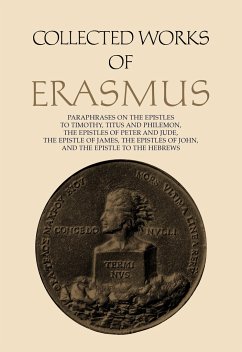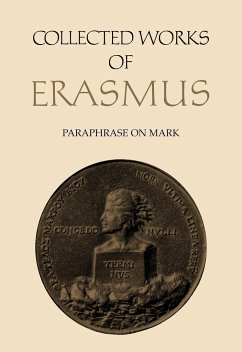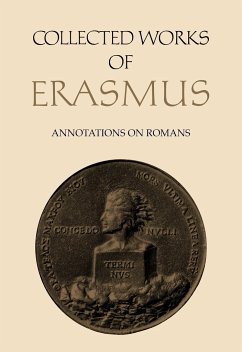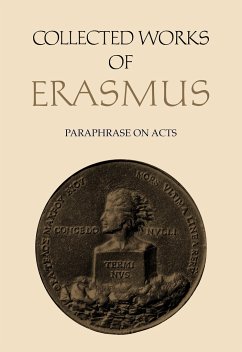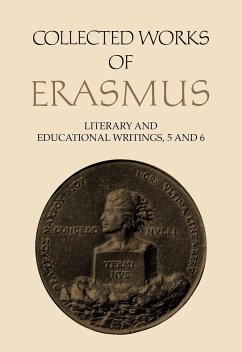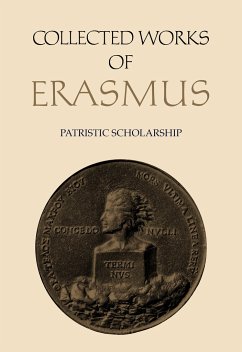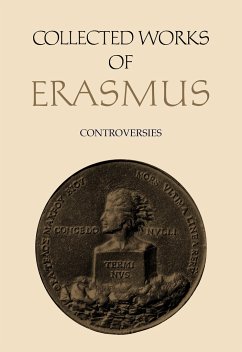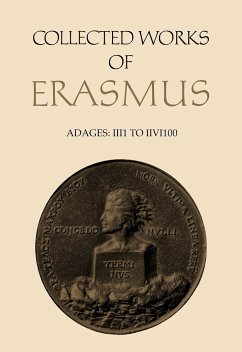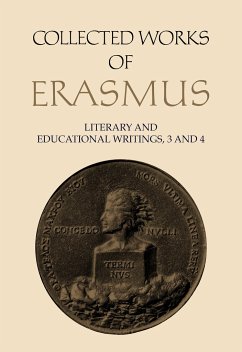
Collected Works of Erasmus
Paraphrase on John, Volume 46
Herausgeber: Sider, Robert D / Übersetzer: Phillips, Jane E
Versandkostenfrei!
Versandfertig in über 4 Wochen
98,99 €
inkl. MwSt.

PAYBACK Punkte
49 °P sammeln!
Erasmus yearned to make the Bible an effective instrument in the reform of society, church, and the life of individuals in the turbulent world the sixteenth century. He therefore composed paraphrases in which the words of Holy Scripture provided the core of a text vastly expanded to embrace the reforming 'philosophy of Christ.' The Paraphrases were successful beyond expectation and were quickly translated from Latin into French, German, English, and other languages. This volume is the third Paraphrase to be published in the New Testament Scholarship series in the CWE. In it Erasmus explores qu...
Erasmus yearned to make the Bible an effective instrument in the reform of society, church, and the life of individuals in the turbulent world the sixteenth century. He therefore composed paraphrases in which the words of Holy Scripture provided the core of a text vastly expanded to embrace the reforming 'philosophy of Christ.' The Paraphrases were successful beyond expectation and were quickly translated from Latin into French, German, English, and other languages. This volume is the third Paraphrase to be published in the New Testament Scholarship series in the CWE. In it Erasmus explores questions that have always been central to Christian self-understanding. Why is the cross folly to the wise of this world? In the Paraphrase on John, Erasmus hints broadly that the cause of human blindness lies in the arrogance of intellectual pretensions, the love of vain-glory, the lust for possessions, the fear of losing the supports that secure a comfortable way of life. Perhaps nothing will please the reader more the portraits of the chief characters in John's Gospels. We enjoy the simplicity of the lowly woman at the well, we understand the complexity of the distinguished Nicodemus. Above all, we are captured by the portrait of Christ himself. Upon the stage Erasmus has here designed, Christ appears first in the humility of a lowly artisan from a despised country; only to the discerning does his glory flash forth from his mortality, a mortality vividly etched in the scene on the cross. But in the last pages of the Paraphrase on John, Erasmus sets before us in sharp dramatic contrast the resurrected Christ glorious with a radiant holiness. Like Augustine in the City of God, Erasmus attempts to define the relationship between the two worlds in which the Christian lives - the heavenly and the spiritual, and the earthly and physical. Volume 46 of the Collected Works of Erasmus series.



